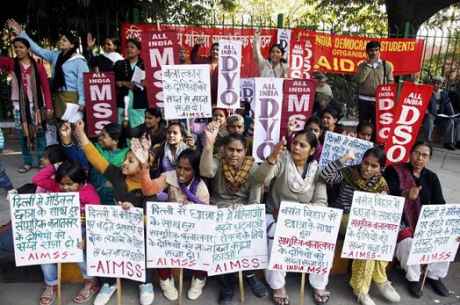 North Korea Increases Aid to Russia, Mos... Tue Nov 19, 2024 12:29 | Marko Marjanovi? North Korea Increases Aid to Russia, Mos... Tue Nov 19, 2024 12:29 | Marko Marjanovi?
 Trump Assembles a War Cabinet Sat Nov 16, 2024 10:29 | Marko Marjanovi? Trump Assembles a War Cabinet Sat Nov 16, 2024 10:29 | Marko Marjanovi?
 Slavgrinder Ramps Up Into Overdrive Tue Nov 12, 2024 10:29 | Marko Marjanovi? Slavgrinder Ramps Up Into Overdrive Tue Nov 12, 2024 10:29 | Marko Marjanovi?
 ?Existential? Culling to Continue on Com... Mon Nov 11, 2024 10:28 | Marko Marjanovi? ?Existential? Culling to Continue on Com... Mon Nov 11, 2024 10:28 | Marko Marjanovi?
 US to Deploy Military Contractors to Ukr... Sun Nov 10, 2024 02:37 | Field Empty US to Deploy Military Contractors to Ukr... Sun Nov 10, 2024 02:37 | Field Empty Anti-Empire >>
Indymedia Ireland is a volunteer-run non-commercial open publishing website for local and international news, opinion & analysis, press releases and events. Its main objective is to enable the public to participate in reporting and analysis of the news and other important events and aspects of our daily lives and thereby give a voice to people.
 Fraud and mismanagement at University College Cork Thu Aug 28, 2025 18:30 | Calli Morganite Fraud and mismanagement at University College Cork Thu Aug 28, 2025 18:30 | Calli Morganite
UCC has paid huge sums to a criminal professor
This story is not for republication. I bear responsibility for the things I write. I have read the guidelines and understand that I must not write anything untrue, and I won't.
This is a public interest story about a complete failure of governance and management at UCC.
 Deliberate Design Flaw In ChatGPT-5 Sun Aug 17, 2025 08:04 | Mind Agent Deliberate Design Flaw In ChatGPT-5 Sun Aug 17, 2025 08:04 | Mind Agent
Socratic Dialog Between ChatGPT-5 and Mind Agent Reveals Fatal and Deliberate 'Design by Construction' Flaw
This design flaw in ChatGPT-5's default epistemic mode subverts what the much touted ChatGPT-5 can do... so long as the flaw is not tickled, any usage should be fine---The epistemological question is: how would anyone in the public, includes you reading this (since no one is all knowing), in an unfamiliar domain know whether or not the flaw has been tickled when seeking information or understanding of a domain without prior knowledge of that domain???!
This analysis is a pretty unique and significant contribution to the space of empirical evaluation of LLMs that exist in AI public world... at least thus far, as far as I am aware! For what it's worth--as if anyone in the ChatGPT universe cares as they pile up on using the "PhD level scholar in your pocket".
According to GPT-5, and according to my tests, this flaw exists in all LLMs... What is revealing is the deduction GPT-5 made: Why ?design choice? starts looking like ?deliberate flaw?.
People are paying $200 a month to not just ChatGPT, but all major LLMs have similar Pro pricing! I bet they, like the normal user of free ChatGPT, stay in LLM's default mode where the flaw manifests itself. As it did in this evaluation.
 AI Reach: Gemini Reasoning Question of God Sat Aug 02, 2025 20:00 | Mind Agent AI Reach: Gemini Reasoning Question of God Sat Aug 02, 2025 20:00 | Mind Agent
Evaluating Semantic Reasoning Capability of AI Chatbot on Ontologically Deep Abstract (bias neutral) Thought
I have been evaluating AI Chatbot agents for their epistemic limits over the past two months, and have tested all major AI Agents, ChatGPT, Grok, Claude, Perplexity, and DeepSeek, for their epistemic limits and their negative impact as information gate-keepers.... Today I decided to test for how AI could be the boon for humanity in other positive areas, such as in completely abstract realms, such as metaphysical thought. Meaning, I wanted to test the LLMs for Positives beyond what most researchers benchmark these for, or have expressed in the approx. 2500 Turing tests in Humanity?s Last Exam.. And I chose as my first candidate, Google DeepMind's Gemini as I had not evaluated it before on anything.
 Israeli Human Rights Group B'Tselem finally Admits It is Genocide releasing Our Genocide report Fri Aug 01, 2025 23:54 | 1 of indy Israeli Human Rights Group B'Tselem finally Admits It is Genocide releasing Our Genocide report Fri Aug 01, 2025 23:54 | 1 of indy
We have all known it for over 2 years that it is a genocide in Gaza
Israeli human rights group B'Tselem has finally admitted what everyone else outside Israel has known for two years is that the Israeli state is carrying out a genocide in Gaza
Western governments like the USA are complicit in it as they have been supplying the huge bombs and missiles used by Israel and dropped on innocent civilians in Gaza. One phone call from the USA regime could have ended it at any point. However many other countries are complicity with their tacit approval and neighboring Arab countries have been pretty spinless too in their support
With the release of this report titled: Our Genocide -there is a good chance this will make it okay for more people within Israel itself to speak out and do something about it despite the fact that many there are actually in support of the Gaza
 China?s CITY WIDE CASH SEIZURES Begin ? ATMs Frozen, Digital Yuan FORCED Overnight Wed Jul 30, 2025 21:40 | 1 of indy China?s CITY WIDE CASH SEIZURES Begin ? ATMs Frozen, Digital Yuan FORCED Overnight Wed Jul 30, 2025 21:40 | 1 of indy
This story is unverified but it is very instructive of what will happen when cash is removed
THIS STORY IS UNVERIFIED BUT PLEASE WATCH THE VIDEO OR READ THE TRANSCRIPT AS IT GIVES AN VERY GOOD IDEA OF WHAT A CASHLESS SOCIETY WILL LOOK LIKE. And it ain't pretty
A single video report has come out of China claiming China's biggest cities are now cashless, not by choice, but by force. The report goes on to claim ATMs have gone dark, vaults are being emptied. And overnight (July 20 into 21), the digital yuan is the only currency allowed. The Saker >>
Interested in maladministration. Estd. 2005
 RTEs Sarah McInerney ? Fianna Fail?supporter? Anthony RTEs Sarah McInerney ? Fianna Fail?supporter? Anthony
 Joe Duffy is dishonest and untrustworthy Anthony Joe Duffy is dishonest and untrustworthy Anthony
 Robert Watt complaint: Time for decision by SIPO Anthony Robert Watt complaint: Time for decision by SIPO Anthony
 RTE in breach of its own editorial principles Anthony RTE in breach of its own editorial principles Anthony
 Waiting for SIPO Anthony Waiting for SIPO Anthony Public Inquiry >>
Voltaire, international edition
 Will intergovernmental institutions withstand the end of the "American Empire"?,... Sat Apr 05, 2025 07:15 | en Will intergovernmental institutions withstand the end of the "American Empire"?,... Sat Apr 05, 2025 07:15 | en
 Voltaire, International Newsletter N?127 Sat Apr 05, 2025 06:38 | en Voltaire, International Newsletter N?127 Sat Apr 05, 2025 06:38 | en
 Disintegration of Western democracy begins in France Sat Apr 05, 2025 06:00 | en Disintegration of Western democracy begins in France Sat Apr 05, 2025 06:00 | en
 Voltaire, International Newsletter N?126 Fri Mar 28, 2025 11:39 | en Voltaire, International Newsletter N?126 Fri Mar 28, 2025 11:39 | en
 The International Conference on Combating Anti-Semitism by Amichai Chikli and Na... Fri Mar 28, 2025 11:31 | en The International Conference on Combating Anti-Semitism by Amichai Chikli and Na... Fri Mar 28, 2025 11:31 | en Voltaire Network >>
|
Women’s rights: Turning point in India, triumph in Manila
 international |
gender and sexuality |
news report international |
gender and sexuality |
news report
 Thursday January 03, 2013 11:49 Thursday January 03, 2013 11:49 by Walden Bello by Walden Bello

Women’s rights have been in the forefront of international concern over the last few weeks.
 Up in arms against rape
Making the biggest headlines were the massive demonstrations in New Delhi and other cities in India provoked by the brutal gang-rape by six men of a 23-year-old physiotherapy student in a moving bus in the Indian capital. The crime, which saw the victim suffer extremely serious wounds in her genitals and intestines, proved to be the trigger for the release of popular anger that had built up over the years over the rise in violence against women.
The statistics are horrific. According to government estimates, almost every 20 minutes, a woman is raped in India. In New Delhi, dubbed the “rape capital of India,” the incidence of rape rose from 572 in 2011 to 661 so far in 2012. Of the 256,329 incidents of violent crime reported for 2011, a total of 228,650, or close to 90 percent, were committed against women.
What accounts for what one writer describes as the “increasingly predatory sexual culture”? For some analysts, the rise in sexual aggression is related to male resentment of the erosion of the traditional subordination of women in India’s patriarchal society by women’s increasing role in the work force, their increased mobility, and their growing social and economic empowerment.
Also a major factor has been police laxness in dealing with rape reports and increased impunity by rapists owing to the victims’ feeling that the legal processes are stacked against them and their wish to avoid the stigma associated with being raped or abused. India is, in this regard, much like other societies, and is little different from, say, the United States, which analyst Shenali Waduge, citing government estimates, says tops the rape chart.
Yet the current protests may turn out to be a turning point, for while much of the media reporting has focused on spontaneous demands like the death penalty or chemical castration for rapists and sex offenders, the recent developments may well mark the emergence of a massive militant mass movement in India that will focus on confronting head-on the patriarchal norms propping up the social subordination of women that is at the root of much sexual violence.
Historic triumph against patriarchy in the Philippines
Even as India’s gender equation may be in the process of transformation, the women’s movement registered a historic victory in the Philippines with the passage of the Reproductive Health (RH) Bill. The law, which makes family planning an obligatory policy for the current administration and for future ones, was passed Dec 17 in the House of Representatives and the Senate in the teeth of ferocious opposition from the super-patriarchal Catholic Church hierarchy.
Key provisions of the new law include, among others, the provision of free or cheap contraceptives to poor couples, institutionalization of sex education for students from the sixth grade up, the establishment of maternal care facilities in state-run hospitals, and provision of reproductive health counseling and treatment for women in all hospitals, including those suffering from post-abortion complications, while ensuring respect for the rights of health professionals who cannot offer these services owing to religious belief.
The passage of the RH bill was seen widely as an enormous debacle for the Catholic Church, to which some 80 per cent of the population nominally belong. For 14 years, the Church hierarchy had thrown everything, including the proverbial kitchen sink, at the campaign to have the bill enacted into law. How did the RH advocates manage to beat an institution that has been a massive force in Philippine society for nearly 500 years?
Well, first of all, the Church was fighting a rearguard battle whose outcome could not be in doubt in the long run. Survey after survey had shown large majorities of the population favoring family planning and that these majorities got larger over time. Whereas 61 per cent of respondents in a Social Weather Station survey conducted in 1990 agreed with the statement that “the choice of family planning method is a personal choice of couples and no one should interfere with it,” by 2011, respondents agreeing with it came to 82 per cent.
Yet the passage of the bill could have taken longer had it not been for strategic shift in the discourse of the pro-RH forces. Population management has long enjoyed widespread popular support, with some 90 percent of respondents in an October 2008 Pulse Asia survey agreeing with the statement that it was important to “have the ability to control fertility or plan a family” for the “welfare of the country.” However, in the early years of the family planning debate, the Church and its allies managed, with some success, to paint a sinister side to population management, depicting it as an American plot to contain the Philippines population to serve the interests of the United States as well as a scheme to create a market for the big western contraceptive manufacturers.
The pro-RH coalition was made up of forces that saw unrestrained population growth as a major cause of poverty and underdevelopment and women’s groups that focused on the reproductive rights of women. In the early years of the family planning debate, the discourse was heavily weighted on the side of population management. In the last few years, however, the discourse shifted heavily towards emphasizing the reproductive rights and welfare of women.
While the Church and its political allies continued to portray the bill as a foreign-inspired attempt to control the population of the country, the pro-RH forces were able to popularize the bill to politicians and to the public as one that would allow women and their partners free and informed choice in deciding the size of their families and the spacing of their children in order to achieve a better quality of like by providing them access to free or low-cost contraceptives.
While the Church and its allies denied that the family size was positively correlated with poverty, RH advocates produced convincing statistics that showed that the larger the family, the lower its income. They also produced reliable studies that showed that over 22 percent of Filipino couples wanted to limit their families to escape poverty but were prevented by lack of access to contraceptives and lack of familiarity with family planning, from doing so.
While the anti-RH forces claimed that promoting contraception would inevitably lead to legitimizing abortion, the pro-RH forces turned the argument around and argued that providing access to contraceptives would greatly reduce the incidence of abortion, which is now estimated at 400,000 to 500,000 a year. The anti-RH forces also found it difficult to counter the pro-RH coalition’s claim that greater reproductive health care would greatly reduce the mortality rate for Filipino mothers, which increased from 162 per 100,000 live births in 2009 to 221 in 2011.
While the Church tried hard to present the program as a top-down population control program on the part of the state, the pro-RH forces argued successfully that a decline in the fertility rate at the macro level would be an “incidental result” of voluntary family planning at the micro level–though a very important incidental result, since failure in the near future to reduce the country’s currently high Total Fertility Rate (TFR) of 3.1 would guarantee a population of some 200-250 million or more at the end of the century, which most economists and ecologists agreed would be unsustainable.
In the end, the Church hierarchy and its allies were reduced to becoming, like their counterparts in the climate front, denialists—that is, denying flat-out the results of surveys, medical statistics, and demographic calculations. Or they were cornered into making fallacious arguments such as the claim the RH bill was unconstitutional because it was anti-life, uttering silly statements like the classic assertion of one congressman that “contraception is abortion,” or trotting out outrageous remarks like that of Lipa Archbishop Ramon Arguelles, who compared President Benigno Aquino III to the shooter Adam Lanza, who massacred 27 children and adults in Newtown, Connecticut.
Two steps forward, one step back
The events in India and the Philippines are steps forward in the struggle against gender oppression and for women’s rights. Yet that the road ahead promises no easy struggle for women is underlined by recent developments in the African country of Swaziland, where, according to a Agence France Presse report, police “have banned women from wearing miniskirts and midriff-revealing tops, saying they provoke rape.” The article goes on to quote police spokeswoman Wendy Hleta as saying, “The act of the rapist is made easy, because it would be easy to remove the half-cloth worn by women.” Further, according to Hleta, “women wearing revealing clothing were responsible for assaults or rapes committed against them.”
Swaziland may have gone farther than other societies in banning what its ultra-conservative authorities regard as unacceptable women’s wear. But the blaming-the-victim syndrome they exhibit is still far too common an attitude among men, whether in the United States, India, Africa, Europe, or Latin America.
More broadly, misogynist and patriarchal attitudes are not only resisting stubbornly. In many societies, they are making a comeback. Witness recent developments in Egypt, formerly one of the Arab world’s most secular societies, where Islamists in power are pushing hard, as in Iran, to resubordinate women to traditional gender roles.
Women throughout the world are on the march, but the struggle against sexual oppression and gender rights will continue to be a difficult one, where significant steps forward will be matched by occasional steps back.
Walden Bello is representative of the party Akbayan in the Philippine House of Representatives. http://akbayan.org.ph
______________________________________________________________________
Feminist Flashmob for Women's Rights (Philippines)
During the International Human Rights Day, December 10, 2012, a feminist flashmob dance to the tune of "I am Woman" led by World March of Women - Pilipinas was held at Plaza Miranda (in front on Quiapo Church, Manila), at noon.
Women dancers-activists first blended with the vendors, with some holding balloons, as fortune-tellers, beggars, etc. Three dancers started clapping to the tune of the music, then seven dancers joined releasing purple balloons bearing the logo of the World March of Women. They were joined by another 20 coming from the crowd, until it grew to 70.
The last batch of dancers, students from the University of the Philippines --Manila made it a throng. On the last minute of the song, as steps turned to hip-hop, dancers took off their costumes, revealing white shirts which defiantly bore words "RH Now" in the face of continued delay in its passage in Congress. Some shirts shout "Climate Justice!", in the face of ongoing negotiations in Doha, Qatar and the devastation of typhoon Pablo in Mindanao. Other shirts carried slogans such as "Women Need FOI!", "Secure Jobs for All!" and "Scrap VFA!"
Around 100 participated in the flashmob from Alliance of Progressive Labor (APL), Bagong Kamalayan, Batis Center for Women, Buklod, Center for Migrant Advocacy (CMA), Coalition Against Trafficking in Women - Asia Pacific (CATW-AP), Focus on the Global South, Foundation for Media Alternatives, KAISA - Nagkakaisang Iskolar para sa Pamantasan at Sambayanan - UP Diliman, KAISA-KA, Pambansang Koalisyon ng Kababaihan sa Kanayunan (PKKK), Partido ng Manggagawa (PM), Sarilaya, TIGRA Philippines, UP Manila students, WomanHealth Philippines, Women's Crisis Center (WCC), and Youth and Students Advancing Gender Equality (YSAGE)
Video: http://www.youtube.com/watch?feature=player_embedded&v=...2GyM#!
http://focusweb.org/content/feminist-flashmob-womens-ri...pines




|
 international |
gender and sexuality |
news report
international |
gender and sexuality |
news report
 Thursday January 03, 2013 11:49
Thursday January 03, 2013 11:49 by Walden Bello
by Walden Bello






























 printable version
printable version

 Digg this
Digg this del.icio.us
del.icio.us Furl
Furl Reddit
Reddit Technorati
Technorati Facebook
Facebook Gab
Gab Twitter
Twitter